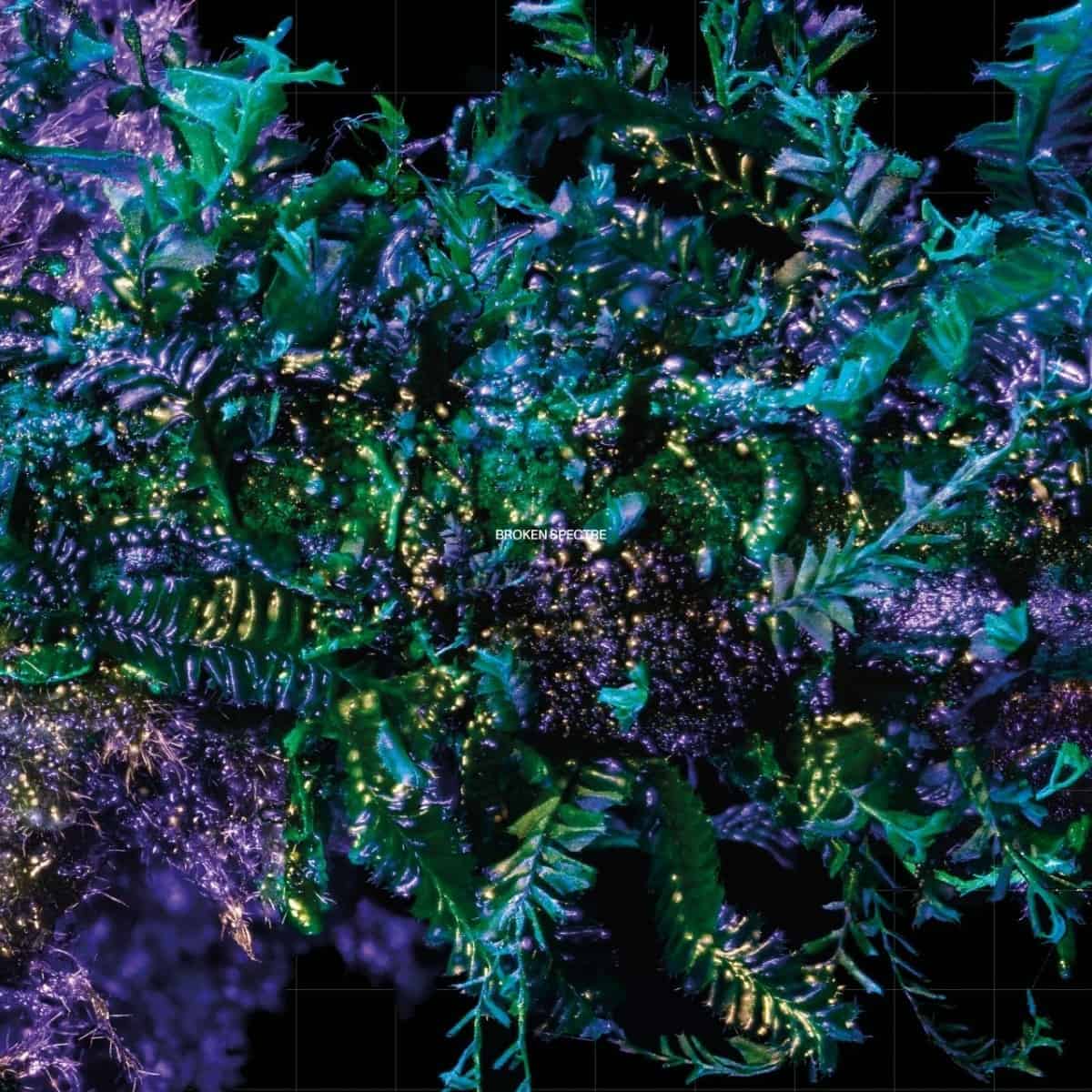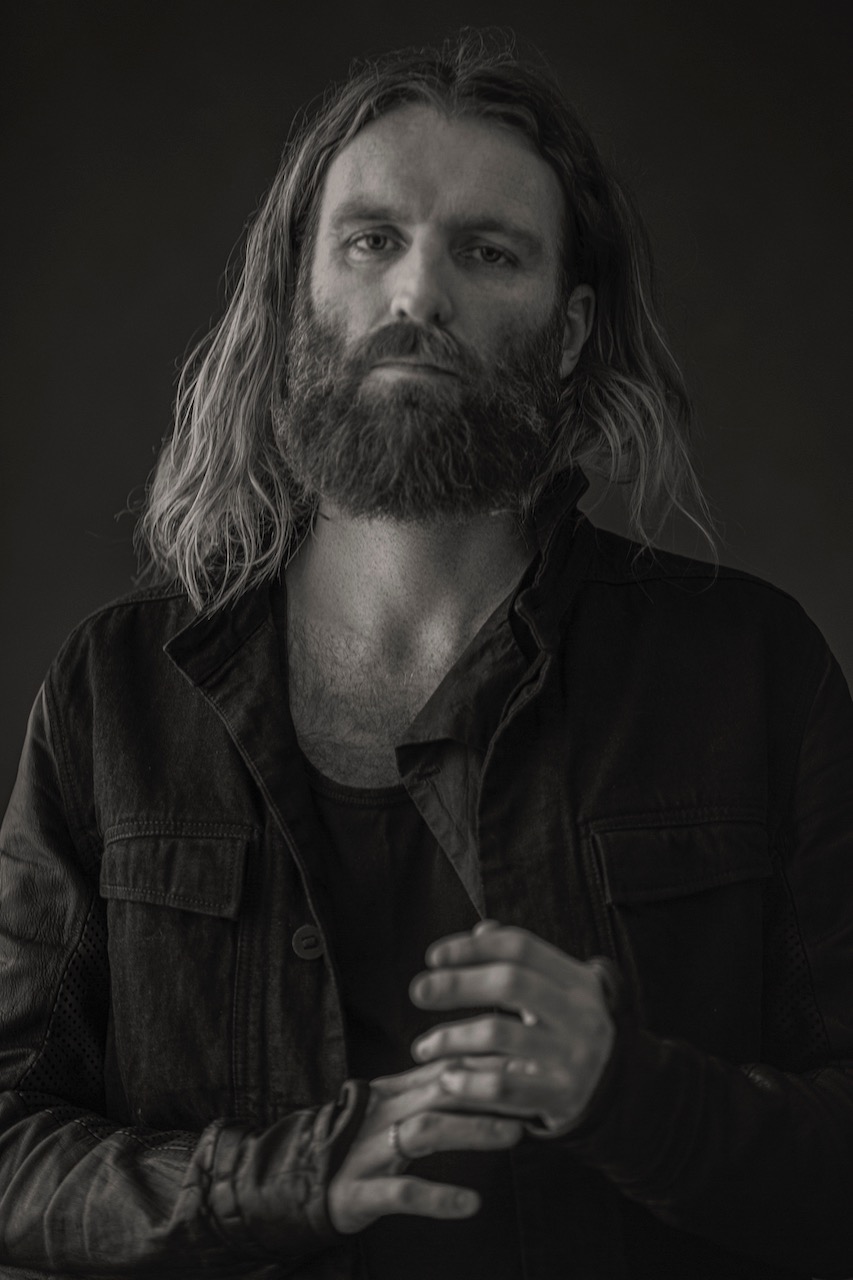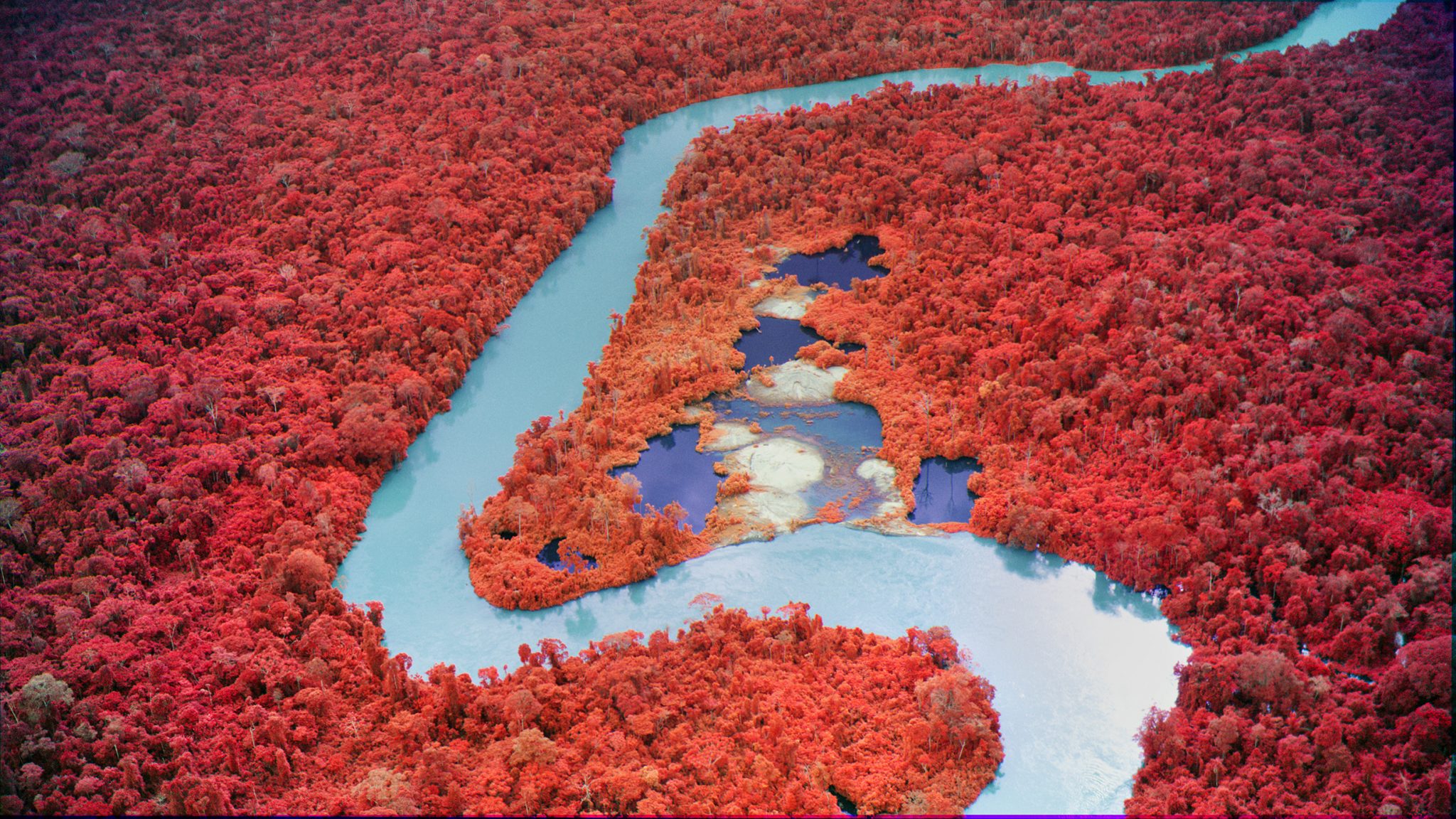How is it possible to make the vastness of the jungle quite so boring?
The Australian-Icelandic experimental producer Ben Frost writes that Broken Spectre (2022), his first studio album in five years is ‘ultimately a document of failure. A failure of our democracies, a failure of political will, a failure of imagination, and creatively, my own failure to communicate through sound the vast scale of the Amazon and the ongoing damage inflicted upon it by the policies of Jair Bolsonaro.’ In this admission of failure is an implicit assumption that Frost had believed that, as an electronic musician of impeccable pedigree and international repute, this project would have been able to achieve… what, exactly? If he arrived in the rainforest, expecting to record an album that would neatly sum up the unknowable power yet vulnerability of the rainforest ecosystem, perhaps Frost was doomed before he even began, like Werner Herzog’s Fitzcarraldo trying to lift his steamboat up over a jungle mountain ridge.
Broken Spectre also serves as the soundtrack to visual artist Richard Mosse’s installation of the same name, on view at London’s 180 Studios until 30 December. Mosse pointed thermal imaging cameras at the rainforest foliage while Frost slowed down his field recordings to try to capture the sounds of fauna and flora usually inaudible to the human ear, along with insect hums, mammalian hoots and bird calls.

Field recordings are a vital part of the tapestry of serious wildlife documentaries that have the potential to push people towards greater environmental awareness. The sound recordist Chris Watson, for instance, is just one of a skilled team who work on David Attenborough’s increasingly polemical television series. As depressing as it is, field recordings can also become reminders of what is threatened, and eventually, what we have lost. It seems as if it was Frost’s intention to do something similar here, and he could perhaps have succeeded were it not for the rather jarring collision of the sounds of the rainforest and his own interventions. Frost’s source material is manipulated, edited and creative decisions made that push the sonics not towards meaning and engagement but towards at best a curiously bland evocation of the ominous – like some old painting of mountains or forests that sought to reach the sublime in nature, now mass reproduced as a souvenir tea towel. The trebly lunges of ‘The Index’, for instance, are merely overbearing, almost macho, something reflected in track titles like ‘The Killing Ground’, A Guide To Virtual Death’ and so on. Something bad is happening to this ecosystem, Frost seems to be telling us, as if we didn’t already know.
This is a frequent problem. ‘The Intensive Care Unit’ is what appears to be a human being on some kind of ventilation, a breath coming in mechanically-assisted gasps. Perhaps this is a recording of something in ‘Nature’ manipulated to sound ‘Human’, but if so it merely reinforces the unfortunate binaries that have landed the world in the mess that it is in. If this is a comment on the dangers of deforestation impacting the planet’s lungs it feels trite and in the context of the COVID-19 pandemic that hit Brazil especially hard, it seems in terrible taste. Even the way the album ends, with the fauna cacophony of ‘The Crystal World’ cutting off into silence after four minutes and fourteen seconds, paradoxically lacks drama. Instead of reflecting an absence caused by environmental destruction, it merely begs the question, is this it? By making a record so overblown and pompous, Frost’s interpretation of the rainforest is paradoxically rather boring.

When a musical practice that relates to landscape succeeds, it is because the artist has been sensitive and thoughtful as to how they place human identity within the endless power of the natural world. The work of Richard Skelton, for instance, engages with humanity’s essential futility against the incomprehensible vastness of deep time, using a subtlety in his deployment of electronic drones to find within it a provocative feeling of hope. Laura Cannell’s violin and recorder drones evoke a human and nature dialogue in the specificity of the Suffolk and Norfolk woodlands and marshes. Belgian-Congolese electronic composer Nkisi’s new soundtrack to artist Stanley Schtinter’s remake of Derek Jarman’s short film A Journey To Avebury (1971) drops a fizzing, energetic human rhythm that challenges folkish understanding of Britain’s ancient stones. All of these artists are not merely original but approach their work with a humility and their subject with a sense of wonder. Broken Spectre unfortunately lacks both.
All too often people seem to believe that their interaction with the natural world is neutral. I think of the fads for forest bathing and wild swimming, or tourists visiting a beautiful space in search of a nature cure, or an edifying selfie. Like Frost’s belief that he could turn up in the rainforest and make an album that captured its essence, these are arguably activities that are as transactional as logging, a belief that the landscape is there to give the human something back. I don’t doubt Frost’s motivations, but in the grandiose assumptions he made before undertaking this album lies a hubris and entitlement that, ironically enough, reflects the troublesome human attitude towards the natural world that he seeks to critique.
